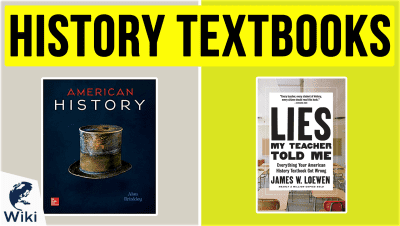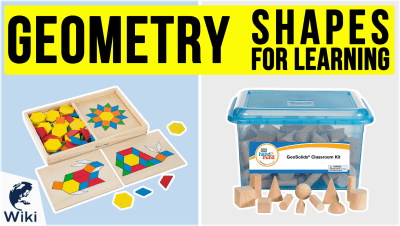6 Organizations Working To Change The Way We Think About Prisons
The criminal justice system is complicated and flawed, and too often inmates are ignored in the political discourse because they're kept out of the public eye. These organizations focus on problems in the system, advocating for legal reforms and providing aid to those who have been incarcerated so they can improve their lives. This video was made with Ezvid Wikimaker.
6 Groups Working to Change the Prison System for the Better
| Name | Focus |
|---|---|
| Evolve Our Prison Farms | Advocates for an ethical and environmentally sustainable approach to Canada’s federal prison farm program that involves innovative agriculture and animal-assisted therapy |
| Equal Justice Under Law | Non-profit law organization dedicated to achieving equality in the criminal system and ending cycles of poverty through impact litigation, policy reform, and public outreach |
| Prison Performing Arts | Literacy and performing arts program dedicated to enriching the lives of both youth and adults in Missouri’s criminal and juvenile justice systems |
| Alabama Appleseed Center for Law and Justice | Non-partisan organization focusing on issues of justice and equity such as protecting the right to counsel and ending civil asset forfeiture |
| The Petey Greene Program | Recruits and trains volunteer tutors to assist incarcerated students as they work to achieve their academic goals |
| Root & Rebound | Helps the families and communities most harmed by mass incarceration through legal advocacy, public education, policy reform and litigation |
Animal Justice & Evolve Our Prison Farms
Incarceration Rates Worldwide
| Rank | Country | Total population in 2019 | Total number of prisoners | Prisoners per 100,000 people |
|---|---|---|---|---|
| 1 | United States | 329,064,917 | 2,193,798 | 737 |
| 2 | Russia | 145,872,256 | 874,161 | 615 |
| 3 | Ukraine | 43,993,638 | 162,602 | 350 |
| 4 | South Africa | 58,558,270 | 158,501 | 334 |
| 5 | Poland | 37,887,768 | 89,546 | 235 |
| 6 | Mexico | 127,575,529 | 214,450 | 196 |
| 7 | Brazil | 211,049,527 | 371,482 | 193 |
| 8 | Spain | 46,736,776 | 63,991 | 144 |
| 9 | Kenya | 52,573,973 | 47,036 | 130 |
| 10 | The Netherlands | 17,097,130 | 21,013 | 128 |
The Petey Greene Program
In Depth
The rise of mass incarceration has led to numerous inequities within the penal system. Policies that disproportionately imprison the poor, overcrowded correctional facilities, and legal barriers for former inmates render abuse rampant and rehabilitation difficult. Presented here, in no particular order, are some groups fighting for reforms and making a difference in the lives of prisoners.
Starting us off at #1 is Evolve Our Prison Farms, dedicated to shifting Canada's penal agriculture system to a voluntary, rehabilitative, and sustainable model. This group argues that involving inmates in raising animals for commercial production, with attendant slaughter and confinement, is abusive to animals and detrimental to attempts to reduce recidivism. Through demonstrations and outreach, the organization raises awareness about conditions on prison farms.
Evolve Our Prison Farms shares perspectives on penal farming from current and former prisoners, as well as from corrections officials, academics, and human rights advocates. Experts such as Kelly Struthers-Montford, a criminology researcher, or Dr. Amy Fitzgerald, a specialist on interpersonal abuse, argue that exploitative agriculture could contribute to violent tendencies among prisoners. The organization produces informational materials and petitions, calling for a therapeutic and sustainable approach.
Evolve Our Prison Farms shares perspectives on penal farming from current and former prisoners, as well as from corrections officials, academics, and human rights advocates.
Up next at #2 is Equal Justice Under Law, a nonprofit fighting to make the criminal justice system more equitable for the poor. The group opposes practices such as monetary bail, suspension of drivers' licenses for court debt, and privatized prisons; its advocacy efforts contend that these measures penalize offenders for inability to pay, or threaten livelihoods and create cycles of poverty.
Equal Justice Under Law files complaints and class action lawsuits on behalf of those impacted by discriminatory measures such as fining residents of low-value homes, fee-based GPS monitoring, or license suspensions for court costs. The organization also advocates for legislative reforms, and shares stories from individuals who have experienced disproportionate penalties. Its online journal, The Justice Report, posts articles spotlighting unequal treatment of offenders.
#3 in our overview is Prison Performing Arts, which offers opportunities for creative expression to individuals who have been involved with the justice system. Current and former inmates mount theatrical productions including Shakespeare's The Tempest, or a modern retelling of Antigone, helping to build teamwork and communication skills. Plays such as the comedic prison drama Run-On Sentence enable reflection on themes of incarceration and justice.
Plays such as the comedic prison drama Run-On Sentence enable reflection on themes of incarceration and justice.
Along with its adult offerings, PPA operates youth programs such as the Hip Hop Poetry Project at St. Louis City Juvenile Detention Center, or Learning Through the Arts classes for justice-involved young people. The group's Alumni Theatre Company is made up of former inmates, offering support for those transitioning back into society. PPA's testimonials and blog offer insights into the benefits of prison drama programs.
Coming in at #4 is Alabama Appleseed Center for Law and Justice, working to reform the state's legal system to increase fairness and equity. The group organizes advocacy efforts like its Fair Schools campaign, opposing harsh discipline regimes that push children from public education to the penal system. It also pushes for an end to predatory payday loans, and calls attention to inhumane conditions within state correctional facilities.
Alabama Appleseed generates reports on topics such as the harms of privatized prisons, the weaknesses of existing diversion programs meant to reduce incarceration, or the disproportionate costs of marijuana enforcement. The organization also provides legal aid to low-income defendants through the Access to Justice campaign, and raises awareness about the need for criminal justice reform.
The organization also provides legal aid to low-income defendants through the Access to Justice campaign, and raises awareness about the need for criminal justice reform.
At #5 we have the Petey Greene Program, which works to support the educational aspirations of incarcerated students. Named for an imprisoned activist who became an advocate for the rights of current and former inmates, this initiative recruits volunteer tutors to work within prison classrooms, assisting learners who need additional help.
The majority of PGP volunteers are college or graduate students, and the program works with universities to offer a variety of on-campus and virtual educational events, for those interested in justice, incarceration, and education. The organization offers training for its tutors, additional teaching resources for under-served prison schools, and testimonials from students and volunteers.
Closing out our list at #6 is Root & Rebound, which provides resources for those impacted by the criminal justice system and their families, helping them re-enter stable communities. The group's services include in-prison programs preparing inmates for the transition back to society, free legal clinics to educate formerly incarcerated people about their rights, and hotlines for those seeking immediate information.
The group's services include in-prison programs preparing inmates for the transition back to society, free legal clinics to educate formerly incarcerated people about their rights, and hotlines for those seeking immediate information.
In addition to its direct services for individuals exiting correctional facilities, Root & Rebound conducts educational outreach efforts. Examples include presentations for employers on recruiting formerly incarcerated people, or training for attorneys fighting barriers to clients' re-entry. The group creates informational materials like its My Education, My Freedom toolkit for students with a criminal record, and engages in advocacy for criminal justice policy reforms.















